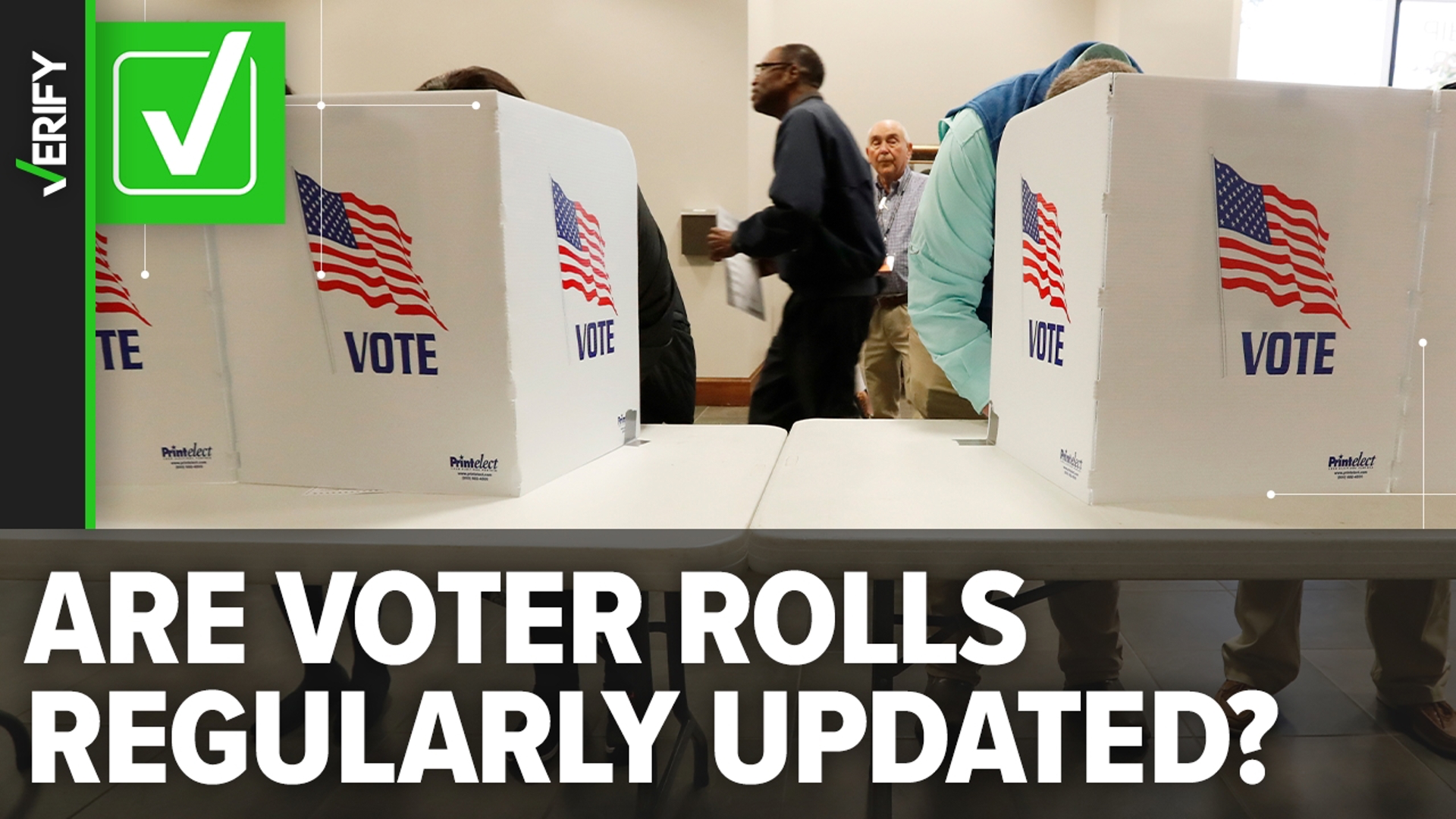Some people are claiming states need to clean up voter rolls and purge ineligible voters as we near Election Day.
A few take it further, claiming that voter rolls are inflated and all states should be required to clean up their voter rolls. The posts suggest that election officials are leaving people ineligible to vote on their registration lists, and that their negligence is allowing those people to illegally vote.
THE QUESTION
Do election officials regularly update voter rolls?
THE SOURCES
THE ANSWER
Yes, election officials regularly update voter rolls, as required by federal law.
WHAT WE FOUND
State election officials are required by federal law to maintain accurate voter registration lists and regularly clear them of voters who may be ineligible for any reason.
The National Voter Registration Act Of 1993 requires election officials maintain these lists in a “uniform and nondiscriminatory manner.” But it prohibits election officials from removing voters from rolls within 90 days of an election, according to the National Conference of State Legislatures (NCSL).
Voters may be removed from lists because they have moved, died, been convicted of certain crimes, been deemed mentally incompetent by the courts, been removed from jury lists or are inactive and fail to engage with election officials who reach out to them. Election officials use federal and state databases, plus databases shared between states, to find this information.
Each state fulfills its obligation to maintain accurate voter rolls in different ways and uses different sets of information to confirm the accuracy of its registration lists, according to the NCSL, the Election Assistance Commission (EAC) and the Cybersecurity and Infrastructure Security Agency (CISA).
Election officials may identify deceased voters using state death records and federal Social Security Administration records. They may use the U.S. Postal Service National Change of Address database and state motor vehicle administration data to identify voters who have moved out of state.
Officials can use felony records from their state department of correction to find voters who may be ineligible because of a crime they have committed. Some states use jury lists to remove noncitizens who may have been erroneously registered to vote.
Many states participate in interstate exchanges, such as the Electronic Registration Information Center (ERIC), to compare voter registration data with other states. This is particularly useful for identifying voters who have moved out of state and registered to vote in their new state.
States may purge inactive voters from their registration lists, but only after they’ve mailed the voter a notice asking them to confirm their address. Even if the voter doesn’t respond, election officials can only remove the voter from the rolls if the voter hasn’t responded or voted for at least two general federal elections, or four years, the NCSL says.
The one state that doesn’t have to maintain its voter registration list is North Dakota. That’s because North Dakota is the only state that does not have voter registration; voters just have to bring an ID to the polls to vote.

